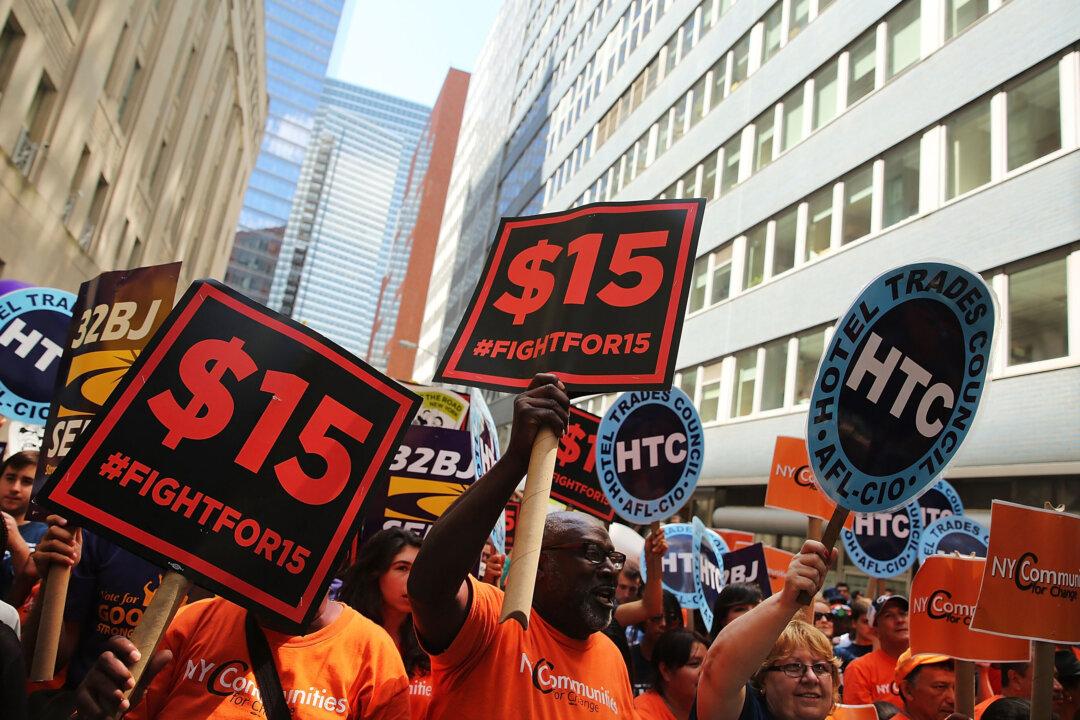A Nebraska small business owner and an expert with the Heritage Foundation, a conservative think tank, told NTD News’ “The Nation Speaks” in a recent interview that a $15 federal minimum wage would have a major impact on many of the country’s small businesses, including forcing them to cut hours, replace human labor with automation, hitting them with a range of hidden costs, and pushing some into bankruptcy.
Entrepreneur Kevin Barnhill, who owns Blair Meat Market in Blair, Nebraska, said that the federal minimum wage hike now being pushed in Washington would have an “enormous” impact on the bottom line and operations of his business—and likely many others.






